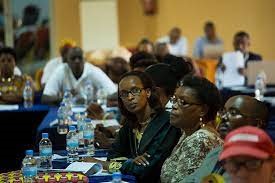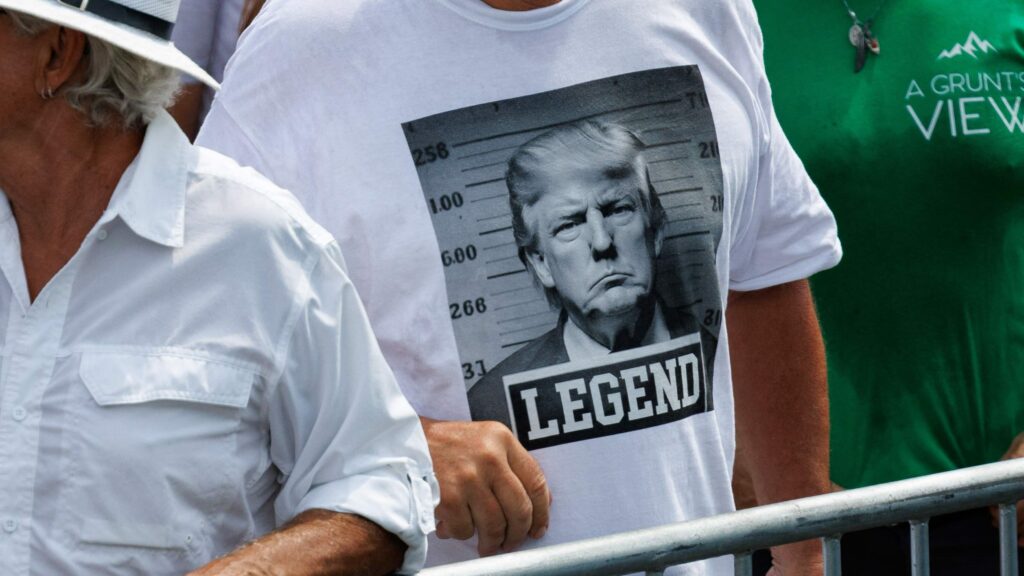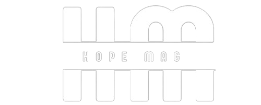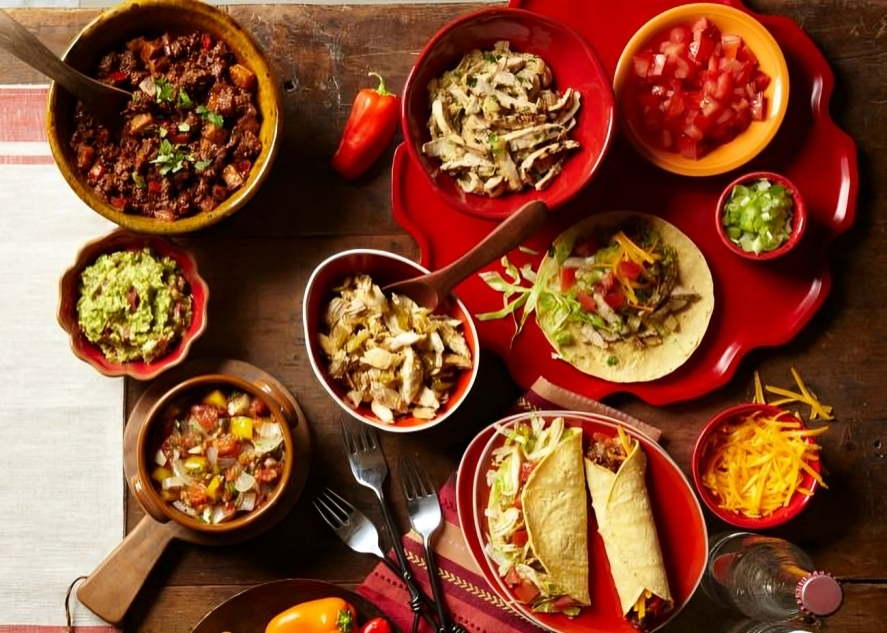News
Giving a voice to Rwandan civil society in the EAC

With a market of over 133 million people and the potential opportunity for people to work and reside in other countries within the East African Community (EAC), regional integration offers many opportunities to both Rwandan businesses and citizens.
Nevertheless, a possible Achilles heel for achieving the ambitions of regional integration is to leave the common man out of the loop. Indeed one of the principal reasons for the collapse of the first integration effort between Kenya, Tanzania and Uganda between 1967 and 1977 was that integration was perceived to be a politically driven process which did not involve the common citizen in the process. For this reason one of the central tenants of the EAC integration today is for regional integration to be people centered and private sector driven rather than being imposed by respective central governments.
It is against this backdrop that TradeMark East Africa (TMEA), a multi-donor funded agency supporting trade and regional integration in the EAC, is providing support to civil society through grants and technical support to civil society organisations (CSOs).
Through their membership networks and geographical outreach, CSOs are an effective channel for communicating to the common man in the street. TMEA supports strategic CSOs to raise awareness about opportunities and challenges around regional integration to their members while empowering them to play a more proactive role in the integration process through evidence based advocacy and participation in platforms of dialogue with government and the private sector says Mark Priestley, TMEA Rwanda Country Director.
The TMEA Rwanda programme covers over 6 broad interventions which collectively focus on facilitating trade and deepening the EAC integration process. One of these 6 pillars is focused on giving a voice to non-state actors from civil society and the private sector in the integration process. This supplement focuses on TMEAís support to Civil Society in Rwanda and in particular, TMEA\\\\\\\\\\\\\\\’s support to some particular CSOs working on issues ranging from consumer protection, barriers to cross border traders, constraints to movement of Rwandans to other EAC countries due to a lack of harmonisation of social security systems and lack of understanding about the EAC:
The EACSOF-Rwanda-TMEA partnership
Influencing policies that promote people-participation in the EAC integration process
The EACSOF-Rwanda National Coordinator, Sebahizi Prudence, explains how this civil society forum has promoted EAC integration through capacity building, awareness raising and research and advocacy.
The East African Civil Society Organisations Forum (EACSOF) was born at the EAC level in 2004 with the EACSOF-Rwanda chapter opening shop in Kigali in 2009. EACSOF has the major function of advocating for the interests of the East African people throughout the regional integration process. Among its core functions is to stimulate the participation of the ordinary persons by enhancing their rights and advocating for sustainable development in the bigger EAC.
EACSOF-Rwanda is the first and so far unique permanent national chapter of the regional EACSOF. Once again, Rwanda is showing the way to its EAC counterparts and will hopefully see the interest of its civil society advocated for and safeguarded. This institution is bringing huge added-value to the advocacy work at regional level on behalf of the Rwandan civil society, seen as relatively uncoordinated when compared to the other EAC counterparts.
The specific mission of EACSOF-Rwanda as a national chapter is to advocate at the regional level for sound policies and programs on behalf of the Rwandan civil society as well as to promote citizens awareness and participation in EAC matters. The Forum started with 28 member Civil Society Organisations (CSOs) which are empowered to have a greater permeation effect of integration values and notions among the general population.
At the inception of EACSOF-Rwanda, the member organisations were working on an ad hoc basis. Through TradeMark East Africa (TMEA) support, the permanent Rwanda Chapter office was set up and the institutional capacity of EACSOF has been developed with a permanent office in Gasabo, Kigali, and three technical staff the National Coordinator, a Finance Expert and a Research Policy and Advocacy Expert. TMEA has provided a grant of US$ 935,000 to cater for all the operational activities since April 2012 but also provides technical assistance, hires experts/consultants on a regular basis to carry out trainings and other services. This support will be in place up to 2014.
The four broad pillars of activities that EACSOF-Rwanda carries out are: capacity building of their member CSOs; awareness raising on EAC regional integration process and potential benefits; research on key topics related to the regional integration and advocacy, including at the regional level, on behalf of the Rwandan civil society. EACSOF-Rwanda has been able to earn a number of accomplishments in these core areas of intervention in the past months.
Capacity Building
EACSOF-Rwanda started with building the capacity of their members in Project Cycle Management where about 53 individuals from 33 organisations were trained in October-November 2012.
Training on Policy Analysis and Advocacy Skills has also been carried out, where EACSOF has targeted several CSOs. So far, 50 participants from 33 organisations have been equipped with the said skills on analysing a public policy, why it should be put in place, identifying the challenges, gaps and needs.
A Regional Network has been created where the local CSOs have been linked to the regional ones. It is in tandem with enhancing the spirit of sharing experiences that regional visits of 12 members have been carried out to Arusha, Nairobi, Kampala and Bujumbura. Such visits have given members regional exposure with plans underway to have Memoranda of Understanding between different CSOs to ensure sustained collaboration.
Institutional Audits for 10 CSOs have also been carried out to establish their organisational/management status and identify potential gaps in their organisational structures, systems and personnel – among others. The audit findings will therefore feed into developing appropriate capacity building plans – both at the institutional and individual levels.
Awareness Raising
EACSOF-Rwanda Chapter supports CSOs involved in the creation of awareness among Rwandans on the opportunities available in the EAC.
So far, EACSOF has participated in a regional Training of Trainers and developed a common training manual on regional integration for the EAC member states which will form the foundation for training in all the 30 districts of Rwanda. About 60 trainers will be trained by the end of March 2013 after which two will be deployed per district. The said trainers will get involved in the training of at least 1,200 local leaders on the rights and opportunities to be reaped from the EAC.
On top of this, a weekly radio talk-show has been running since July 2012 to discuss integration issues with a special focus on the elaboration of the regional protocols. The talk-show serves two purposes: awareness creation as well as advocacy. EACSOF-Rwanda has also launched its own website in July 2012 and has participated in a wide range of other awareness raising activities such as the East African Community Week, policy debates on regional integration, border visits and others whereof the delivery of integration messages have been accentuated.
Lastly, the Forum supports member CSOs to participate in different regional meetings, promotes networking and using the avenue to share experiences amongst themselves.
Advocacy
EACSOF has organized the member CSOs into five thematic groups of Governance and Democracy, Peace and Security, Social and Economic Justice, Environment and Natural resources and Science and Technology. The groups carry out research and advocacy functions. The ongoing research activities supported by EACSOF include identification of challenges of Common Market Protocol implementation in line with free movement of workers between the member states.
In addition, specific member CSOs have been supported in their own specific research activities. ProFemmes/Twese Hamwe, for example, has been assisted in conducting a study on Challenges facing women in cross-border trade. The study is now completed and the findings will form a basis for addressing the challenges women in informal cross-border trade face. The Umbrella of Associations for Defense of Human Rights (CLADHO) has too been assisted with conducting a study on The status of harmonization of labour and social protection services in East Africa. On the whole, EACSOF-Rwanda is working with different CSOs that are pushing for the agenda of EAC integration and implementation of protocols. The major intervention points are at a policy level and the ultimate goal is drawing people-participation in the process of the East African integration.
While currently representing Rwanda CSOs on different committees such as the National Monitoring Committee on Non-Tariff Barriers and the National Implementation Committee on the Implementation of Common Market Protocols, EACSOF-Rwanda has also participated in the East African Community Dialogue Framework, a platform where the private sector and civil society discuss issues pertaining to the integration with governments and the EAC Secretariat.
Pro-Femmes/Twese Hamwe-TMEA partnership
Empowering women informal cross-border traders
The Pro-Femmes/Twese Hamwe Women Informal Cross Border Traders (WICBTs) Project Coordinator, Ejid Mupenzi, gives an insight into on-going programmes to help women realise the opportunities of EAC integration. Pro-Femmes/Twese Hamwe (PFTH), formed in 1992, is an umbrella of local organisations in Rwanda, promoting the values of gender, peace and development. It has great inclinations towards accentuating women and development issues. Pro-Femmes is also seen as a voice of women organisations on gender and development issues and a member-based, research, advocacy and service oriented organisation.
In a bid to deepen the East African Community (EAC) integration, and, especially, engendering gender-related issues in the integration agenda, Pro-Femmes/Twese Hamwe received a US$ 249,970 grant funding from TradeMark East Africa (TMEA) up to June 2014 for a project whose final goal is to enhance an East Africa regional integration that permits women and men of the EAC to fight against poverty and contribute to sustainable economic development. As much as 74% of informal cross-border trade (CBT) is conducted by women and it is estimated that 90% of these women rely on this trade as their sole source of income. In addition, women trade predominately in lower value primary products which reduces their profits. The East African regional integration could represent an opportunity for women informal cross-border traders to increase their profits but most of them have not yet well understood the benefits of belonging to the EAC and do not have enough awareness on the signed treaties and protocols on EAC integration, they therefore miss many of the best opportunities. They are also often forced to pay bribes or are subject to harassment or act of abuse and violence from officials at the borders.
The main objective of this project is to empower the Rwandan women who are involved in this informal CBT.
It focuses on the following activities:
Research and advocacy on EAC integration with a view to influence decisions on gender and trade issues.
Capacity building and sensitisation of Pro-Femmes/Twese Hamwe and all the Member Civil Society Organizations CSOs on EAC integration process and gender dimensions of EAC integration. Awareness of beneficiary women informal cross border traders (ICBTs) about EAC integration, related trade opportunities and benefits.
Capacity Building for women involved in informal cross-border trade.
Research and Advocacy
Two research activities were carried out by Pro-Femmes/Twese Hamwe to inform policy decisions and interventions by the private and public sectors as well as the civil society stakeholders at the national and EAC levels. The objective is to ensure that evidence-based advocacy on EAC integration and regulatory framework is carried out on behalf of women cross-border traders.
Capacity Building for Pro-Femmes Members in Advocacy Skills
Training is underway to equip Pro-Femmes/Twese Hamwe and member associations with policy analysis and advocacy skills on EAC integration regulatory framework and processes. The training will help member associations sensitize their constituencies/members so they can be able to influence EAC integration decision making processes.
Training in policy analysis and advocacy skills has also been carried out with an ultimate goal of influencing harmonisation of national and EAC policies in favour of putting gender issues on the decision making high-table.
Awareness Raising
Research indicates that there is an immediate need for awareness raising and sensitisation interventions on the EAC integration process for informal cross border traders. As a result, Pro-femmes has so far provided sensitisation on EAC integration benefits and opportunities to WICBTs from 4 cooperatives; 2 that operate their businesses across Cyanika border and 2 which operate their businesses across Akanyaru border. Similar activities are underway on Kagitumba, Nemba and Buziba borders.
Capacity Building and Access to Microfinance
Women informal cross-border traders who were erstwhile operating individually and in a scattered way have been, through group formation support activities, encouraged and supported to form cooperatives or other business entities so that their small resources can translate into tangible businesses. Approximately 167 women from Cyanika, Akanyaru and Musanze have formed into pre-cooperatives and are in the process of acquiring certification from Rwanda Cooperatives Agency. Technical support to management committees of those cooperatives has also been given on the process to acquire registration at the different certification levels. As part of the TMEA funded project, Pro-Femmes will strengthen the exposure of women involved in informal cross-border trade by organizing study tours across the region and support the formation and strengthening of Women ICBT networks.
It is envisaged that these activities will promote networking opportunities between the Rwanda side of the border traders cooperatives and those in the neighbouring countries and as such increased access to market. Having built their confidence and knowledge to meet cross-border trade requirements, Pro-Femmes is now working on the best ways of introducing them to accessing finances from banks and micro-finance institutions as credible clients.
Microjustice-TMEA partnership
Giving justice to traders crossing borders
Microjustice4All (MJ4All) is a Dutch NGO that provides access to justice through the provision of legal services. It works in a practical manner through a network of small local country organisations. MJ4All\\\\\\\\\\\\\\\’s overall mission is to empower vulnerable men, women and children to enjoy fundamental rights through legal services that address the most basic legal needs.
The Microjustice Rwanda border pilot project
MJ4All in collaboration with the local Microjustice Rwanda/MJR NGO received in 2012 a US$ 500,000 funding from TradeMark East Africa (TMEA) for the implementation of a pilot cross-border project.
The objective of this intervention is to increase trade by enabling the freedom of movement of persons, goods, services and capital and by reducing trade-related costs within the context of the East Africa Community (EAC). This project is also being implemented in Uganda under the same TMEA funding by the Microjustice Uganda/MJU NGO, who works in close collaboration with MJR and MJ4All to achieve similar objectives. The MJR and MJU pilot projects are implemented in these two countries to test critical factors and obtain guidance on best approaches, with a view to replicating the project in other EAC member states.
The Microjustice Rwanda (MJR) team operates at the Gatuna-Katuna border between Rwanda and Uganda where they directly engage with border users and give them advice and legal education (workshops and trainings) on the rights and obligations of cross-border movement of persons and goods within the EAC. MJR team members directly help cross-border traders understand the necessary documentation needed to cross the border, clear their goods at customs and engage in trade-related activities. As Alice Angwech, MJ4All facilitator explains:
We have offices on both sides of the border to help people in so many areas: they need to understand how much tax they are expected to pay on goods taken across the border; they need to understand what paperwork they need certificates of origin and that sort of thing. It\\\\\\\\\\\\\\\’s about basics, but many people don\\\\\\\\\\\\\\\’t know what the basics are.
Taxes and tariffs for the truckers plying the border are defined clearly in an EAC book of agreed tariffs but it people crossing by foot or by communal taxi, bus or car who form Microjustice\\\\\\\\\\\\\\\’s clientele. Many of them are would-be smugglers. ìPeople use secret roads in the hills to avoid declaring anything, says Angwech.
We try to talk to them, to explain to them how much tax they will have to pay. They have no idea, and are often surprised how small the amount is.î Other services offered by MJR to help enlighten ordinary people as to their rights and what the EAC governments expect from them include the registration of businesses and cooperatives; the provision of legal education about EAC rules and regulations for cross-border trade but also ensuring that school children have the right paperwork to study in the neighbouring country; getting gate passes at the border for refugees from the turmoil in the Democratic Republic of Congo etc.
As Mark Priestley, TMEA Rwanda Country Director, explains: the work of Microjustice is very important because it is a practical way to make the Common Market Protocol a reality for people on the ground that may not be aware of their rights and what they are entitled to. It is also a way to identify NTBs that are happening at the borders which can then be taken up through more formal government channels.
CLADHO-TMEA partnership
Facilitating free movement of labour by harmonising social security policies across the EAC
In pursuit of enhancing East African Community (EAC) integration, the partner states have embarked on harmonisation of labour laws, social security and employment policies. This is to get in rhyme with the Common Market Protocol (CMP) which guarantees the free movement of labour, capital, goods and services within the EAC and requires the partner states to change their national policies, laws and regulations.
This ensures that workers do not face discrimination in employment, remuneration and other conditions of work because of their citizenship.
Research and evidence-based advocacy giving CLADHO a voice in the regional integration process. Collectif des Ligues Pour la DÈfense des Droits de l\\\\\\\\\\\\\\\’Homme (CLADHO), or Umbrella of Associations for Defense of Human Rights, is an umbrella of 8 Human Rights organisations that promote socio-economic rights of citizens in Rwanda. The umbrella received a US$ 252,719 grant from TradeMark East Africa (TMEA) in February 2012 to support easy movement of Rwandan professionals within the EAC bloc through a project whose objective is to breakdown and inform some obstacles to the freedom of labour, namely lack of harmonized social security and labour legislation across the borders in EAC for Rwandan migrant workers.
This project is based on the following pillars of activities:
Research and advocacy for proper harmonization of social security and labour legislations in EAC member states.
Identification, reporting and advocacy on areas of abuse in the field of CMP with emphasis on social security and labour legislations in EAC member states.
Capacity building and awareness raising of Rwandan citizens of the bordering districts on the CMP with emphasis on social security and labour legislations in EAC member states.
The first part of the grant funding has helped CLADHO conduct a study on Harmonization of Social Security and Labour Legislations in EAC Member States to collect analyse and summarise the content of social security and labour legislations in EAC member states.
The available baseline information on the status of harmonization of labour and social security in EAC member states has been essential to the development of awareness raising instruments, the development of an advocacy paper to be submitted to the government/EAC Secretariat and a dialogue process that focus on the identification of right partners, target audience, clear objectives of eliminating obstacles in labour mobility within the region.
The different activities undertaken under the TMEA-funded project has enabled CLADHO to establish networks with local and regional stakeholders from various public and private institutions. This intense networking phase has taught CLADHO the importance of creating strong relationships with key partners who can explain the complexity of labour and social security issues, basing on their research findings, experience and leverage in specific areas of intervention.
Social security and labour legislation issues
The research has revealed a number of gaps on existing labour and social security legal provisions which are not in compliance with the Common Market Protocol. The role of CLADHO was to analyse policies in the light of the Common Market Protocol in order to come up with recommendations on how harmonization with the CMP could be achieved. In the present situation, a number of challenges constitute impediments to the realisation of the free movement of labour as expressed by various respondents. There are still discrepancies in EAC member states immigration, social security and labour frameworks which are aggravated by the slow pace of reform of laws relating to Immigration, Labour and Social Security policies. For instance, at national level, free movement of persons falls within various separate legal and administrative frameworks yet public information on national migration frameworks is scarce and migration management capacities are difficult to assess.
Other bottlenecks that CLADHO is looking at are for instance the lack of mutual recognition for several professional qualifications that are not recognised by some of the EAC partner states or the insufficient information available on EAC legislations and policies. All of these issues impede the free movement of citizens within the EAC. CLADHO\\\\\\\\\\\\\\\’s project is looking at ways to tackle these issues both at national and regional levels and to do so in the best interest of the Rwandan civil society.
ADECOR-TMEA partnership
Promoting consumer rights beyond Rwanda borders
The question of consumer rights protection raises hot debate amidst the increasingly high prices of staple foods and other sensitive commodities in Rwanda such as sugar and rice. Established in Rwanda in 2008 as Non-Profit Organisation, l\\\\\\\\\\\\\\\’Association pour la DÈfense des Droits des Consommateurs au Rwanda (ADECOR), or Rwanda Consumers Rights Protection Organisation, is meant to ensure that consumers in Rwanda get goods and services from the bigger East African Community (EAC) that do comply with the country standards.
Since 2011, ADECOR and TMEA have been working together to strengthen the institutional capacity of ADECOR so that it can effectively represent the rights of Rwandan consumers in the integration process. So far, TMEA has provided technical and financial support for the development of a 5-year Strategic Plan and is currently exploring ways to continue funding the organisation.
The support received from TMEA assisted the organisation in widening its network with potential stakeholders and setting its strategic directions for the period 2012-2017to better inform the consumer and carry out evidence-based advocacy.
The effects of ADECOR have begun to be felt among the Rwandans, at least on the policy and advocacy levels. For instance, closely working with MINICOM, the organisation has played an active role in drafting and presenting the Rwanda Competition and Consumer Protection Law in Parliament (the law is already enacted).
According to the ADECOR Executive Secretary, Damien Ndizeye: Despite being a young organisation, ADECOR has grown to get on board 350 members across Rwanda with some provincial committees of consumers and very close working relationship with MINICOM, RURA, RBS, TMEA and other Non-State Actors.î At regional and international levels, the organization has also initiated partnerships with Consumer International (UK), USA Federal Trade Commission (US-FTC), Consumer Protection Council of Nigeria (CPC), African Consumer Protection Dialogue, Consumersí Organizations in Democratic Republic of Congo, Kenya, Uganda, Tanzania and Senegal, TMEA, and other regional and international platforms.
One of the major challenges faced by the civil society organisations, and ADECOR is no exception to the rule, is the capacity gap. According to Ndizeye, in its zeal of advocating for the protection of consumer rights between 2009 and 2010, ADECOR trained all sector local government officials in charge of social affairs throughout the country. Also, some 1020 traders in Kigali City have been trained on the observation of goods and services that meet quality, safety and standards requirements in the country, in addition to over 2000 consumers in Musanze, Rubavu and Kigali.
Conclusion
Regional integration is complex and takes place in a landscape cluttered with technocratic jargon and shrouded in kafkaesque bureaucratic processes.
A key challenge for the drivers of regional integration is to therefore ensure not only that the man on the street understands the benefits and opportunities of regional integration but also that that they actively participate in the process. Given the outreach and mandate that Civil Society Organisations have to represent their members on a wide range of issues related to development, trade and regional integration, these organisations potentially can play an important role in ensuring that the regional integration process is people centered.
However, many of these institutions are weak. One of TMEA\\\\\\\\\\\\\\\’s core areas of support is to therefore give these CSOs a voice in the integration process so that the interests of common citizen can be heard and the benefits of regional integration can be appreciated more widely, particularly for the poor and vulnerable.
As described above the CSOs beneficiaries of TMEA\\\\\\\\\\\\\\\’s assistance are being empowered to play a role in supporting their different target groups such as cross border traders, business women, consumers, farmers in addressing key issues in the integration process such as non-tariff barriers, movement of labour from Rwanda to other EAC countries and the abuse of women traders crossing borders.
-

 News11 months ago
News11 months agoTrump Mug Shot: Exploring the Controversy, Legal Aspects, and FAQs
-

 Tech5 months ago
Tech5 months agoShine Bright with the Twice Lightstick
-

 Tech9 months ago
Tech9 months agoGuide to Nextdoorstudios: Your Ultimate Resource
-

 Health4 months ago
Health4 months agoThe Health Benefits of Indica Edibles: More Than Just a High
-

 Health5 months ago
Health5 months agoThe Best Hybrid Marijuana Strains for a Balanced and Customizable High
-

 Home and Garden10 months ago
Home and Garden10 months agoExploring the World of Spelling Bee Forums: Your Ultimate Guide
-

 Fashion6 months ago
Fashion6 months agoThe Timeless Comfort- Exploring the Essentials of Tracksuit
-

 Entertainment9 months ago
Entertainment9 months agoIzanami Backwards: Unveiling the Mysteries

















